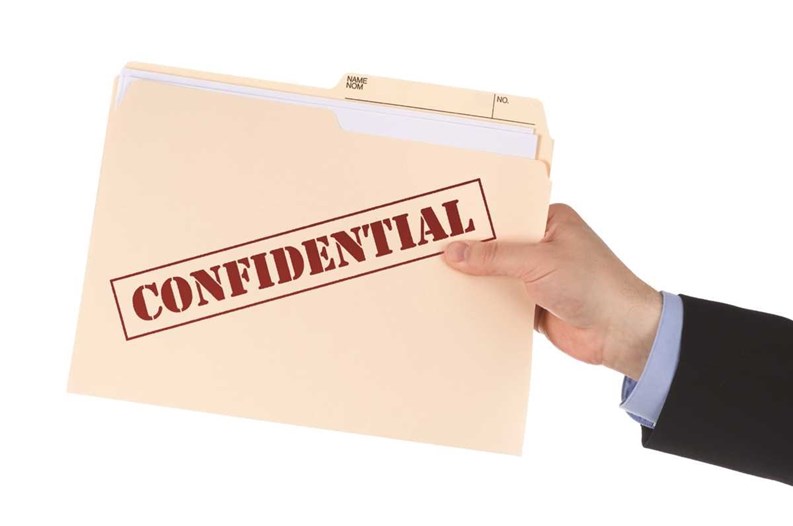While keeping the records of the association is not the most fascinating part of serving on a board, it is in some ways the most important. In fact, the flow of paperwork is the lifeblood of the community.
The Articles of Incorporation, proprietary lease and bylaws in a co-op and the condo association’s master deed, declaration and bylaws are the foundation of the business that is your typical co-op, condominium or homeowners’ association. The voluminous documents produced day to day are the records of its operation and the correspondence among the board, owners and management create the tenor of life within the community. Keeping documents and records tidy and communications responsible and transparent are key to running a functional and harmonious community.
Letters of the Law
The laws governing the documentation the co-op or condo must produce and distribute are few, surprisingly.
According to Wendell Smith, a senior partner at the Woodbridge-based law firm of Greenbaum Rowe Smith & Davis LLP, and co-author of the book, New Jersey Condominium and Community Association Law, these are spelled out in the New Jersey Condominium Act and the New Jersey Nonprofit Organization Act, which, for the most part, regulates cooperatives.
Section 46:8B-14 of the New Jersey Condominium Act states that an association is responsible for the “maintenance of accounting records in accordance with generally accepted accounting principles, open to inspection at reasonable times by unit owner.”
Section 15A of the New Jersey Nonprofit Corporation Act, which generally applies to all co-ops (Smith says the provision also has universal application to all non-profit corporations, including condo associations) states that: “Each corporation shall keep books and records of account and minutes of the proceedings of its members and board and executive committee, if any. Unless otherwise provided in the bylaws, the books, records and minutes may be kept outside this State. The corporation shall make available for inspection at its registered office, in this State, or at its principal office if it is in this State, records containing the names and addresses of all members, the number, class and series of memberships held by each and the dates when they respectively became members of record thereof, within 10 days after demand by a member entitled to inspect them.”
The Governing Documents
The most important document in the life of the condo community, subordinate only to federal and state laws, is the condominium declaration, or covenants, conditions and restrictions (CC&R) in the case of HOAs, written by the developer at its inception. The declaration contains a detailed breakdown of the property, including engineering sketches and each owner’s proportionate share of the property and portion of the monthly common expenses. It also describes the common areas of the complex.
The second record of importance is the bylaws, which lays out the rules for self-governance of the association, including how the board directs its affairs, enforces policies and oversees upkeep and administration. The bylaws also cover such matters as requirements for meetings, voting, the manner in which the budget should be prepared, the determination and handling of assessments, and the filing of assessment liens and restrictions on the use of the units and the common areas. Third in the hierarchy of governing documents are the rules and regulations, which are specific policies the board writes to administer and enforce the declaration and the bylaws.
The rules and regulations are the most malleable of the documents of the association. While bylaws take a super-majority of the association to be amended, the rules can be rewritten by a majority of board members.
Co-op documents, however, are a bit different due to their inherent corporate nature. The articles of incorporation or organization are the most important, followed by the bylaws, rules and regulations and documents regarding stock shares and propriety leases, experts say.
Dan Wurtzel, president of the FirstService Residential's New York offices (the company has offices throughout the nation, including New Jersey) recommends boards make governing documents readily available for unit owners' review.
“Records that shareholders and unit owners are entitled to see on a regular basis should be available for them to see, (whether they use communication tools like “BuildingLink”—we have our own system called “Connect”), certain information like bylaws, house rules, procedures and policies should be in a place so that if an owner or shareholder wants to view those, they're very accessible, as opposed to making a phone call and trying to get them,” Wurtzel says. “Technology today is that if you want to access documents, you should be able to access them instantaneously.”
The Role of the Manager
It’s an association’s obligation to allow for the inspection, examination and copying of documents. If an association is self-managed, the board maintains all records personally. Usually, the secretary member of the board is in charge of overseeing the books and records. However, this position might be delegated to another member of the board.
Larger associations with a property manager will employ them to organize and store documentation.
According to the New Jersey Condo Act, "The obligation of the managing agent is to provide such records of services, material and expenses on behalf of the association, and these records should be freely available for inspection by the association's officers and directors on a reasonable basis during normal business hours."
Managers might facilitate the release of documents to owners, but that is the extent of their involvement, as managers are prohibited from providing legal advice, the experts say. Association members should always contact legal counsel to clear up any confusion regarding building records.
Access to Records
Members of the board essentially have full access to an association’s important documents. Each member has the right to examine all books and records related or pertaining to a matter the board is considering.
“The board should have access to everything, because remember, they are part of the control group of the entity, so the actual board members should have access to any and all documents of the association,” says Hubert Cutolo, founding partner of The Cutolo Law Firm, LLC in Manalapan.
Such isn't the case for owners, though.
“[Board members] have a higher threshold of authority to review documents than an owner. There are certain confidential documents that only a board can see—that's the way the corporate world works,” Wurtzel says.
New Jersey law states all owners are entitled to inspect certain financial documents annually, and as Wurtzel explains, “In the corporate world, the audited financial statement is the one document that all owners should be receiving every year. That contains the summary of finances for that year—that's either a fiscal year or a calendar year.”
Because New Jersey has several pieces of legislation governing condos, co-ops and HOA's and the access to records rights of owners and shareholders, Smith created a universally applicable policy called “Access to Records By Association Members,” which was approved by the Superior Court of New Jersey in the landmark Twin Rivers case.
The policy states that owners and shareholders are entitled to review a building's governing documents, minutes from open sessions for the last three calendar years and financial information such as monthly and annual financial statements for the current and previous years. A written request listing the specific documents desired for review and purpose for access to the documents must be sent to the board 10 business days before the next scheduled open board meeting, per the policy.
While not a matter of law, Smith advises implementing the policy as a matter of best practice.
There are certain privileged documents that only board members can see, and the board has the right to deny access to such records, Cutolo says. “The condo act actually has four separate areas where the board does not have to disclose to the membership, and that's typically dealing with employment concerns, privacy issues, litigation and contract negotiations,” he says. “Of course, once those contract negotiations are finalized, they would have to vote and approve that contract in open fashion. Clearly, you're not going to disclose litigation decisions and strategy. The association has a lot of sensitive information from owners, often times, social security numbers, etc., and those wouldn't be disclosed either,” Cutolo says.
Residents don’t have access to information regarding delinquencies, collections or sales of units by other owners, or “any matter involving the employment, promotion, discipline or dismissal of the specific officer or employee of the association,” per the Condominium Act.
Balancing Transparency & Confidentiality
The pros will tell you transparency is essential to promoting a happy and informed community, but any business requires some level of confidentiality. Straddling the two concepts can become a bit tricky for board members.
“We always promote transparency,” Cutolo says. “Remember, the members are the people with the interest in the association and they're the ones that comprise the association, so we always try to be as transparent as possible. If there is a question of whether it should be disclosed or not, the board should consult counsel, especially if it's something that could prejudice the organization or the individual members.”
Cutolo suggests publishing meeting minutes and other building information via an accessible platform such as a community newsletter or website. Beyond fostering an atmosphere of transparency, regular newsletters or mass emails on specific topics prepare members for any new actions the board is considering, like the enforcement of rules on the books about which previous boards have been lax.
“Providing regular communication to the owners will help eliminate the perception that the board is not being transparent, so the more regular and frequent communication can be sent to the owners, the more the owners understand what's going on and they're in the loop,” Wurtzel says. “When they go to the annual meeting and something is reported like, “Oh, by the way, we are undertaking a massive facade project and it's going to cost $3 million—that should not be the first time the owners are hearing about that.”
Keep Organized
Sure, storing all building documentation is not only legally required, it holds associations accountable for all decisions made—from financial to legal. However, this best practice of storing all records can turn a board’s office into a scene straight out of “Hoarders.”
To avoid drowning in a sea of paperwork, the board can have management scan everything. Digitizing files makes them easy to reference and electronic records are easily transported from the management office to a building’s computer hard drives.
Regardless of whether your small building's records can be kept in a neat filing cabinet, or your sprawling HOA's important documents need to be uploaded and stored online because of the sheer volume of information they contain, maintaining orderly, up-to-date, and transparent documentation is key to running a successful, financially solvent and stable community.
Enjolie Esteve is an editorial assistant at The New Jersey Cooperator. Freelance writer Steven Cutler contributed to this article.







Leave a Comment